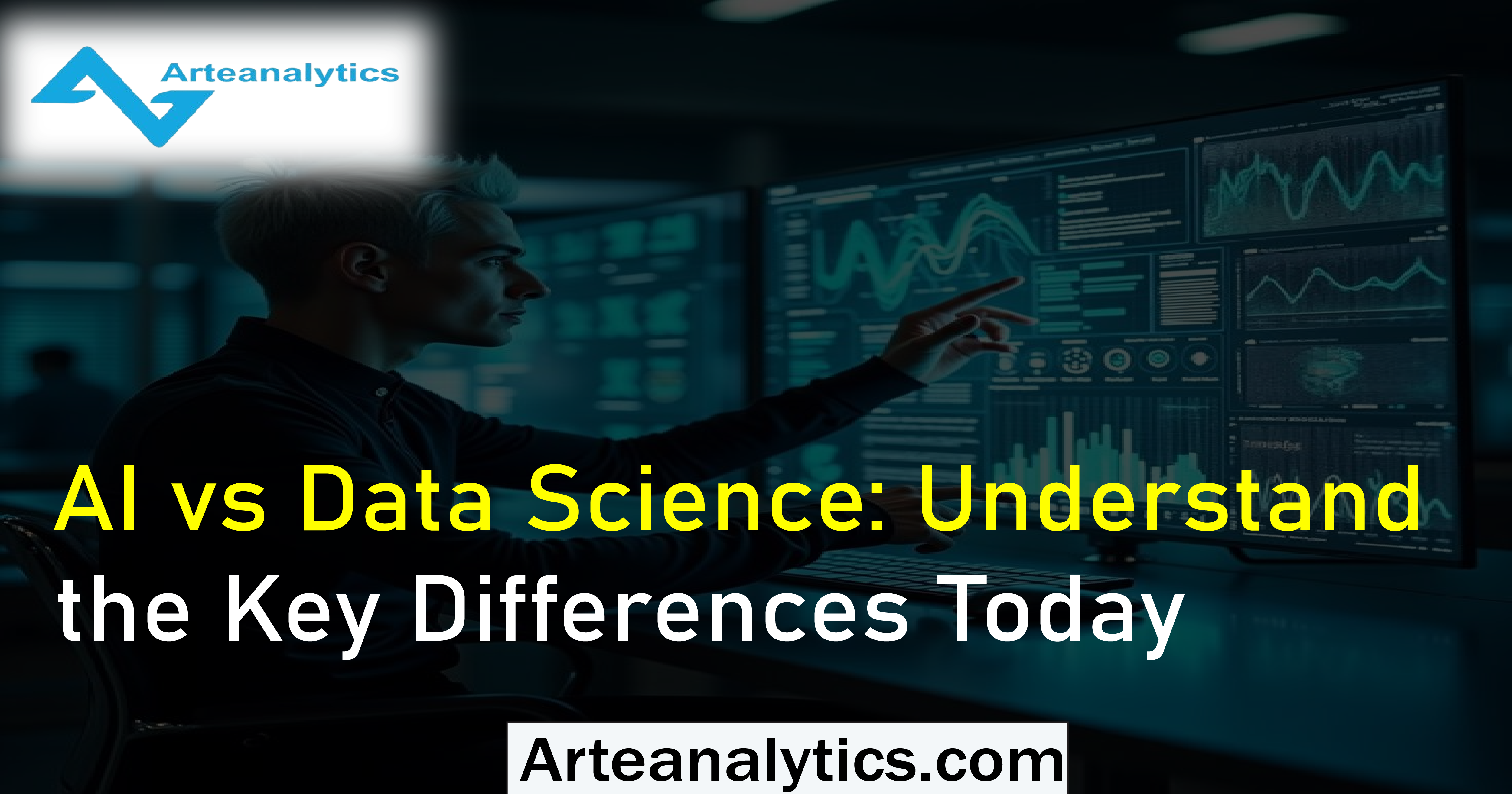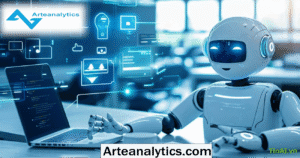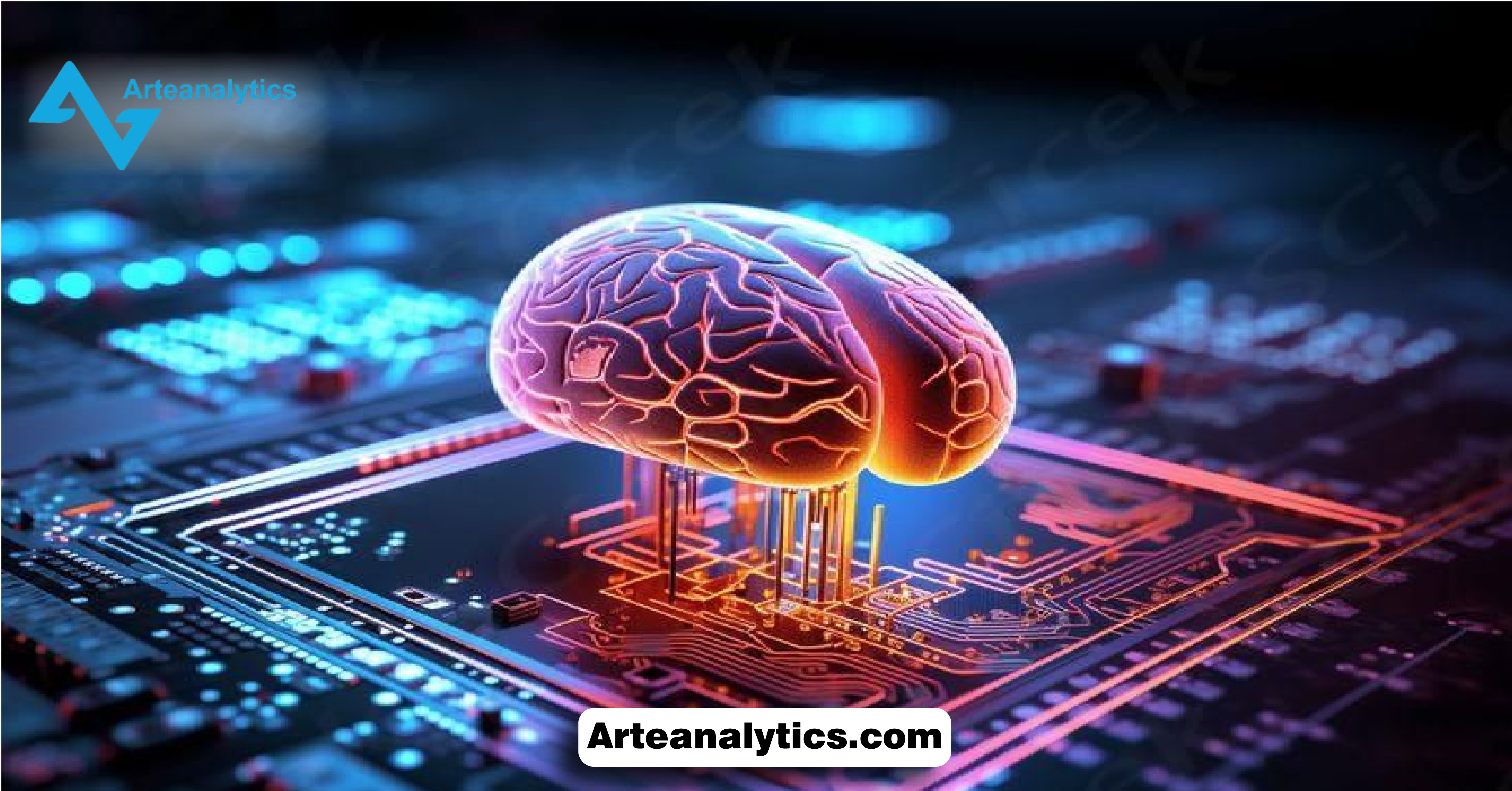AI vs Data Science: Understand the Key Differences Today
Blog | Published on: 2025-07-30

Introduction
Artificial Intelligence (AI) and Data Science have quickly become two buzzwords dominating tech circles: AI vs Data Science. Although both fields often overlap, each provides distinct functions and requires distinct skills:
AI uses artificial intelligence capabilities in machines while Data Science utilizes statistical analysis techniques for insights derived by studying patterns within it - each field shaping future industries across many domains - this article highlights their key differences and explores why each might best suit your career goals.
1. What is Artificial Intelligence?
Artificial Intelligence, commonly referred to as AI, is the science of building machines capable of simulating human intelligence-like tasks such as problem-solving, learning and decision making - even visual or speech recognition! AI systems use algorithms and models which enable their systems to learn over time while becoming smarter over time without direct programming from humans.
2. What Is Data Science?
Data science refers to the discipline of examining large sets of information to discover patterns, trends, and insights within it. Through applying computer science, mathematics, and statistics together with Data Science as its foundational disciplines enables decision makers to address complex problems more efficiently while making sense out of disjointed or scattered pieces of knowledge to turn it into actionable knowledge for businesses or researchers.
3. Main Objectives of Automation Vs Analysis.
Artificial intelligence aims at automating processes similar to those found in humans while Data Science involves gathering and interpreting information in order to better comprehend why something happened and why certain patterns emerged; while AI attempts to replicate intelligence while Data Science seeks to better comprehend data behavior for future planning.
4. Techniques and Methodologies.
Artificial Intelligence uses deep learning, neural networks and reinforcement learning techniques to simulate human intelligence; by contrast Data Science employs statistical modeling, data mining, cleaning and visualization techniques used as part of statistical model cleaning operations or visualization projects which use machine learning technology - although both disciplines utilize similar machine learning technologies the methods are applied differently depending on each use case.

5. Tools and Programming Languages
Tools and Programming Languages AI developers frequently turn to tools such as Tensor Flow, Py Torch, Keras and OpenCV when developing artificial intelligence; these offer models for image recognition, natural language processing and robotics respectively. Meanwhile Data Science utilizes Pandas learn R to analyze and visualize datasets respectively.
6. Real-World Applications
Real World Applications of Artificial Intelligence AI can be seen everywhere from autonomous cars and voice assistants, facial recognition systems and recommendation engines to autonomous facial recognition software and recommendation engines - providing smart systems which work autonomously. Meanwhile Data Science finds applications in market analysis, fraud detection, customer behavior analysis, healthcare forecasting and financial predictions in order to inform strategic decision making using evidence backed insights.
7. Educational Requirements and Backgrounds
Both fields require strong analytical and programming abilities; AI professionals usually possess degrees in computer science, mathematics or robotics while data scientists typically possess backgrounds such as statistics, economics engineering or business but typically possess an emphasis on data interpretation and storytelling.
8. Career Opportunities and Job Roles
Career Options and Roles Whilst AI roles such as AI Engineer, Machine Learning Engineer, Robotics Developer and NLP Scientist offer high-paying opportunities across different industries; data science roles like Analyst, Scientists, Business Intelligence Analysts or Data Engineers also present profitable job options with promising returns across sectors.
9. Collaboration of AI and Data Science
AI and Data Science aren't two separate fields - they complement one another when working together effectively. Data Science can supply AI models with training data while AI enhances Data Science workflows via automation and predictive analytics, creating more powerful, accurate, scalable solutions.
10. Which Field Should You Select?
Your decision between AI and Data Science depends entirely upon your interests. If creating systems to emulate human behaviors is of interest to you, AI might be ideal; on the other hand, Data Science offers opportunities for analysing data directly to solve issues more directly - in fact some professionals combine both sets of skillsets for hybrid roles within modern organizations.
Conclusion:
Artificial Intelligence and Data Science are revolutionizing how our world functions. While AI involves creating systems with artificial intelligence similar to humans performing tasks that humans traditionally complete manually, data Science offers tools for making sense of vast quantities of information. Both fields often work hand in hand in driving forward progress - understanding these differences is key for finding your ideal path and reaping long-term returns and impactful future prospects from investments made into either field.
1. Does AI Fit into Data Science?|
Nope; AI and Data Science serve different goals; AI emphasizes intelligent systems while Data Science searches for insight from data.
2. Which profession offers more job opportunities:
Artificial Intelligence or Data Science? Both professions present exciting employment prospects; AI positions generally focus on technical applications while Data Science roles typically encompass business roles; ultimately it comes down to personal preference and what makes you happy in your chosen job(s).
3. Do AI and Data Science utilize similar tools?
While both disciplines use some shared technologies like Python, they use different libraries - AI preferring Tensor Flow and Torch while Data Science preferring Pandas or Scikit learn for data mining tasks.
4. Can I Study AI and Data Science Together?
Absolutely. Many professionals now utilize skills from both disciplines for maximum job versatility and project insight.
5. Which field would provide me with the easiest starting point in my studies?
Data Science may provide the easiest entryway, while AI requires greater comprehension of mathematics and algorithms.


